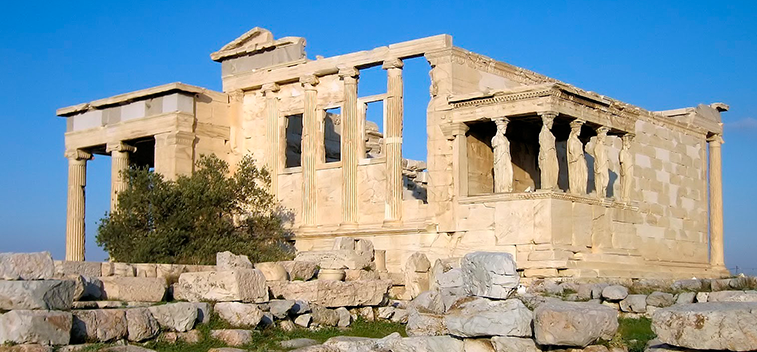THE OLIVE TREE AND THE FOUNDING OF ATHENS

For the Greeks, the olive tree has always been strongly symbolic. An example of this symbolism can be found in Greek mythology, in the legend of the founding of Athens, the political and cultural epicentre of Greek civilisation.
According to the legend, the inhabitants of the still nameless city that would become Athens put Cecrops, the legendary first kind of the city, in charge of naming the city. He was charged with naming it after whichever god or goddess did most for the city's people. At the time, Poseidon and Athena argued over who would become the guardian of the city state and they were prepared to fight over it.
Poseidon, god of the sea and the brother of Zeus, coveted earthly kingdoms, so he tried to claim possession of the city by striking his trident at the city's Acropolis. A natural spring appeared, which appeared to be a precious asset to the city's population. However, when they tried the water. They did not like its salty taste.
Then Athena, goddess of justice and wisdom, arrived in the city and called Cecrops as a witness, before making an olive tree appear next to the spring that Poseidon had created. The citizens soon realised that it was a vital resource, since they discovered that the olive tree could live for hundreds of years and bear edible fruit. In addition, from this fruit the highly valued resource olive oil could be extracted.
Poseidon furiously challenged Athena, but Zeus intervened and ordered a tribunal to be set up to decide which of the gods the city should be adopted by. After listening to Cecrops' testimony, the tribunal decided to side with Athena. It was therefore decided that she would become the guardian of the city, since she had given the city the better gift, the first olive tree. It was then that the city took the name of Athens in gratitude to its goddess protector. The olive tree created by Athena was revered for centuries as a symbol of her victory.
However, there were negative consequences, because when the gods fought, there was always danger for humans. Such was Poseidon's rage that he caused the greatest floods that had ever been seen. Everything in that land would have been destroyed if it had not been for the intervention of Zeus, who ordered Poseidon to stop the flooding. Instead, he allowed Poseidon to punish the women of Athens, whom Poseidon blamed for his defeat.
For this reason, the Athenian women lost the right to vote, while patrilineal descent was established, and thus children began to take their father's surname.
Source: Greek legends and myths
 United States
(English)
United States
(English) Spanish
(Español)
Spanish
(Español) Chine
Chine


















